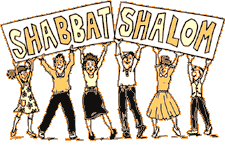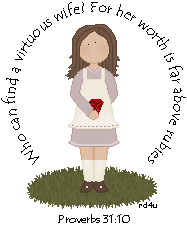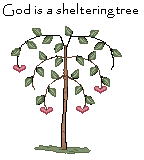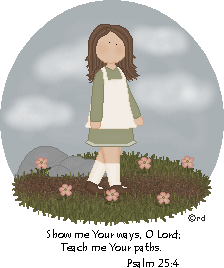By resting on the seventh day and sanctifying it, we remember and acknowledge that G-d is the creator of heaven and earth and all living things. We also emulate the divine example, by refraining from work on the seventh day, as G-d did. If G-d's work can be set aside for a day of rest, how can we believe that our own work is too important to set aside temporarily? In Deuteronomy 5:15, while Moses reiterates the Ten Commandments, he notes the second thing that we must remember on Shabbat:
What does the Exodus have to do with resting on the seventh day? It's all about freedom. As said before, in ancient times, leisure was confined to certain classes; slaves did not get days off. Thus, by resting on Shabbat, we are reminded that we are free. But in a more general sense, Shabbat frees us from our weekday concerns, from our deadlines and schedules and commitments. During the week, we are slaves to our jobs, to our creditors, to our need to provide for ourselves; on Shabbat, we are freed from these concerns, much as our ancestors were freed from slavery in Egypt.
We remember these two meanings of Shabbat when we recite kiddush (the prayer over wine sanctifying Shabbat or a holiday). Friday night kiddush refers to Shabbat as both zikkaron l'ma'aseh bereishit (a memorial of the work in the beginning) and zeicher litzi'at mitzrayim (a remembrance of the exodus from Egypt).
Of course, no discussion of Shabbat would be complete without a discussion of the work that is forbidden on Shabbat. This is another aspect of Shabbat that is grossly misunderstood by people who do not observe it.
Most Americans see the word "work" and think of it in the English sense of the word: physical labor and effort, or employment. Under this definition, turning on a light would be permitted, because it does not require effort, but a rabbi would not be permitted to lead Shabbat services, because leading services is his employment. Jewish law prohibits the former and permits the latter. Many Americans therefore conclude that Jewish law doesn't make any sense.
The problem lies not in Jewish law, but in the definition that Americans are using. The Torah does not prohibit "work" in the 20th century English sense of the word. The Torah prohibits "melachah", which is usually translated as "work," but does not mean precisely the same thing as the English word. Before you can begin to understand the Shabbat restrictions, you must understand the word "melachah."
Melachah generally refers to the kind of work that is creative, or that exercises control or dominion over your environment. The word may be related to "melekh" (king). The quintessential example of melachah is the work of creating the universe, which G-d ceased from on the seventh day. Note that G-d's work did not require a great physical effort: he spoke, and it was done.
The word melachah is rarely used in scripture outside of the context of Shabbat and holiday restrictions. The only other repeated use of the word is in the discussion of the building of the sanctuary and its vessels in the wilderness. Exodus Ch. 31, 35-38. Notably, the Shabbat restrictions are reiterated during this discussion (Ex. 31:13), thus we can infer that the work of creating the sanctuary had to be stopped for Shabbat. From this, the rabbis concluded that the work prohibited on Shabbat is the same as the work of creating the sanctuary. They found 39 categories of forbidden acts, all of which are types of work that were needed to build the sanctuary:
(Mishnah Shabbat, 7:2)
All of these tasks are prohibited, as well as any task that operates by the same principle or has the same purpose. In addition, the rabbis have prohibited handling any implement that is intended to perform one of the above purposes (for example, a hammer, a pencil or a match) unless the tool is needed for a permitted purpose (using a hammer to crack nuts when nothing else is available) or needs to be moved to do something permitted (moving a pencil that is sitting on a prayer book), or in certain other limited circumstances. Objects that may not be handled on Shabbat are referred to as "muktzeh," which means, "that which is set aside," because you set it aside (and don't use it unnecessarily) on Shabbat.
The rabbis have also prohibited travel, buying and selling, and other weekday tasks that would interfere with the spirit of Shabbat. The use of electricity is prohibited because it serves the same function as fire or some of the other prohibitions, or because it is technically considered to be "fire."
The issue of the use of an automobile on Shabbat, so often argued by non-observant Jews, is not really an issue at all for observant Jews. The automobile is powered by an internal combustion engine, which operates by burning gasoline and oil, a clear violation of the Torah prohibition against kindling a fire. In addition, the movement of the car would constitute transporting an object in the public domain, another violation of a Torah prohibition, and in all likelihood the car would be used to travel a distance greater than that permitted by rabbinical prohibitions. For all these reasons, and many more, the use of an automobile on Shabbat is clearly not permitted.
As with almost all of the commandments, all of these Shabbat restrictions can be violated if necessary to save a life.
[ Home ] [ Site Map ] [ Guestbook ] [ Email ] ::Graphics by::
Text from Judaism 101
|







